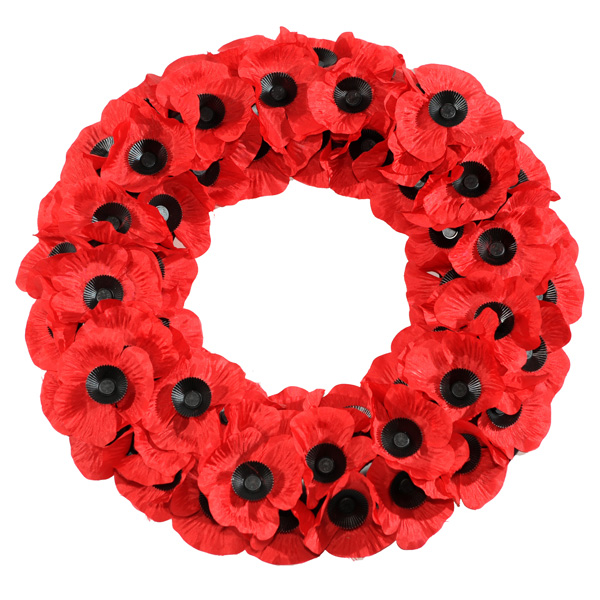Recently some of us have been recounting what we have found in the skeletons lurking in the roots of our family trees. There have been tales of villains, traitors, poor lovers, and children born too soon after their parents' marriage. In the last couple of days, I have found a relative who can only be described as a hero. Here is part of his tale.
My 20th cousin 2X removed, Charles FitzClarence was born in County Kildare, the son of Captain George FitzClarence (15 April 1836 – 24 March 1894) and Maria Henrietta Scott (1841 – 27 July 1912). He had a twin brother named Edward. His paternal grandfather was George FitzClarence, 1st Earl of Munster, an illegitimate son of William, Duke of Clarence (later King William IV of the United Kingdom). He served in the Sudan during the Mahdist War.
FitzClarence was 34 years old, and a captain in The Royal Fusiliers, British Army, during the Second Boer War when the following deeds took place for which he was awarded the Victoria Cross:
On the 14th October, 1899, Captain FitzClarence went with his squadron of the Protectorate Regiment, consisting of only partially trained men, who had never been in action, to the assistance of an armoured train which had gone out from Mafeking. The enemy were in greatly superior numbers, and the squadron was for a time surrounded, and it looked as if nothing could save them from being shot down. Captain FitzClarence, however, by his personal coolness and courage inspired the greatest confidence in his men, and, by his bold and efficient handling of them, not only succeeded in relieving the armoured train, but inflicted a heavy defeat on the Boers, who lost 50 killed and a large number wounded, his own losses being 2 killed and 15 wounded. The moral effect of this blow had a very important bearing on subsequent encounters with the Boers.
On the 27th October, 1899, Captain FitzClarence led his squadron from Mafeking across the open, and made a night attack with the bayonet on one of the enemy's trenches. A hand-to-hand fight took place in the trench, while a heavy fire was concentrated on it from the rear. The enemy was driven out with heavy loss. Captain FitzClarence was the first man into the position and accounted for four of the enemy with his sword. The British lost 6 killed and 9 wounded. Captain FitzClarence was himself slightly wounded. With reference to these two actions, Major-General Baden-Powell states that had this Officer not shown an extraordinary spirit and fearlessness the attacks would have been failures, and we should have suffered heavy loss both in men and prestige.
On the 26th December, 1899, during the action at Game Tree, near Mafeking, Captain FitzClarence again distinguished himself by his coolness and courage, and was again wounded (severely through both legs).[1]
He was transferred to the Irish Guards on that regiment's formation in October 1900. He became a Major in May 1904 and succeeded to the command of the 1st Battalion Irish Guards in July 1909. He later achieved the rank of Brigadier General.
On 27 September 1914 he took command of the 1st Guards' Brigade with the British Expeditionary Force, and he held this command until his death on 12 November of that year. He was killed in action leading the 1st Guards' Brigade against the Prussian Guard.
In October, FitzClarence had played a significant part in the battle for Ypres. Captain Valentine Williams, MC, writing in Blackwood's Magazine, described the action at Gheluvelt thus: "The Coldstream and Scots Guards' battalions of FitzClarence's brigade, in trenches north of Gheluvelt, suffered terribly in a German attack, delivered in a dense mist on the morning of the 27th along the Menin road. The odds against the British were crushing, for on that day some 24,000 Germans were arrayed against about 5,000 exhausted British troops. In two days the Scots Guards lost 10 officers and 370 men killed and wounded. But the result of the day's fighting was that the British line stood firm and unbroken, while the Germans had sustained enormous losses". Sir John French, in his Despatch published on 30 November 1914, described the fighting at this time as: "Perhaps the most important and decisive attack (except that of the Prussian Guard on the 10th November) made against the 1st Corps during the whole of its arduous experiences in the neighbourhood of Ypres."
Blackwood's Magazine for August 1917 carries an article describing FitzClarence's part. It was he who gave the order for the vital counter-attack of 31 October 1914. He "rallied the troops and directed the successful onslaught". Lt Col. E. B. Hankey, involved in the attack, said of FitzClarence: " ... by shoving us in at the time and place he did, the General saved the day."
On the morning of 12 November the Prussian Guard attacked British troops along the Menin Road. Thirteen battalions of them came on, but only in three places did the Prussian Guard break through. On the following morning FitzClarence counter-attacked. The General himself decided to show his old regiment the way, and paid for the decision with his life. FitzClarence fell dead, and neither FitzClarence himself, nor Sir John French knew how well he had served his country at Gheluvelt.
In his Despatch of 20 November 1914, Sir John French said: "Another officer whose name was particularly mentioned to me was Brigadier-General FitzClarence, VC, commanding the 1st Guards' Brigade. He was unfortunately killed in the night attack of the 11th November. His loss will be severely felt".
He was killed in action, aged 49, at Polygon Wood, Zonnebeke, Belgium, on 12 November 1914 whilst commanding the 1st Guards Brigade.[2]
He is the highest-ranking officer inscribed on the Menin Gate Memorial in Ypres, commemorating those with no known grave.
These accounts were taken from Wikipedia :-en.wikipedia.org/wiki/Charl...
I'm proud to have him as a relative. But isn't war futile.
